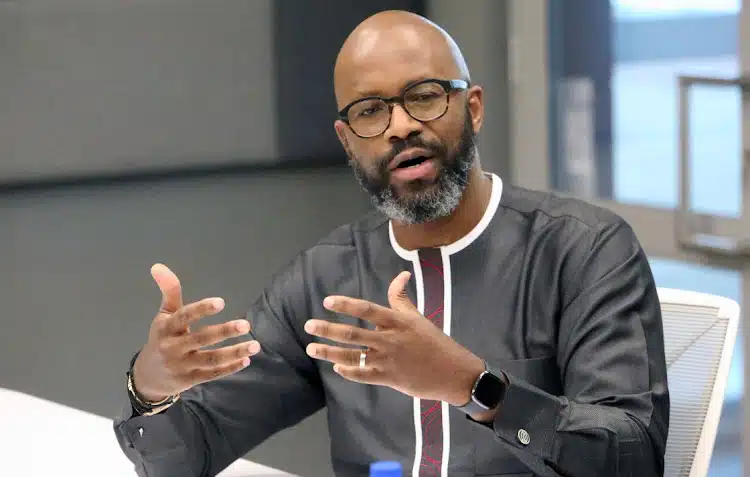Ralph Mupita, MTN’s Group President and CEO, is sounding the alarm on how global trade tensions — particularly US moves to impose new tariffs on tech imports — could impact African economies, affecting everything from mobile coverage expansion to 5G deployment.
Mupita issued the caution at the recent Mobile World Congress in Barcelona. While he didn’t name specific countries, his comments follow growing reports of tariff measures targeting telecom equipment, especially from the US.
“We are concerned about that,” Mupita said. “We hope there will be constructive dialogue between those two blocs.”
MTN, which operates in 19 countries across Africa and the Middle East, spends roughly $2 billion annually on network infrastructure. From Nigeria and South Africa to Ghana and Uganda, these investments are vital for expanding access to mobile internet, upgrading to next-gen networks, and maintaining competitive service levels in fast-growing markets.
But tariffs on imported technology — regardless of their origin — could raise the cost of essential equipment, delay rollouts, and further stretch already tight capital expenditure budgets. For African telecom operators navigating inflation, regulatory shifts, and currency instability, it’s one more uncertainty to contend with.
This isn’t the first time MTN has flagged global issues as potential risks to local operations. In 2022, it was reported that the company’s Nigerian unit was facing pressure from rising diesel costs and forex scarcity, both of which affected the rollout of base stations and expansion to underserved areas.
The group’s Ghana operation has also been subject to regulatory scrutiny that has slowed down some of its growth efforts.
Despite these hurdles, MTN has remained aggressive in its infrastructure push — launching 5G in Nigeria and exploring fintech, enterprise services, and fibre expansion as growth frontiers. Mupita’s comments suggest that such ambitions could be challenged by forces far beyond the continent’s control.
“African telcos are caught in the middle,” says a Lagos-based analyst familiar with the industry. “They depend on global supply chains, but are increasingly vulnerable to policy decisions made in Washington or Brussels.”

Victoria Fakiya – Senior Writer
Techpoint Digest
Stop struggling to find your tech career path
Discover in-demand tech skills and build a standout portfolio in this FREE 5-day email course
Mupita has consistently pushed for what he calls “strategic autonomy” — encouraging regional collaboration, more local manufacturing, and policy alignment among African regulators. Still, even he admits it will take time to build true independence.
“We try to be neutral,” he said in Barcelona, highlighting MTN’s effort to stay out of the geopolitical crossfire. “But the industry will be affected if the tensions persist and turn into hard policy.”
As African countries chase universal connectivity targets and digital inclusion goals, the message is clear: trade policy decisions made in foreign capitals could shape — or stall — the continent’s telecom future.











